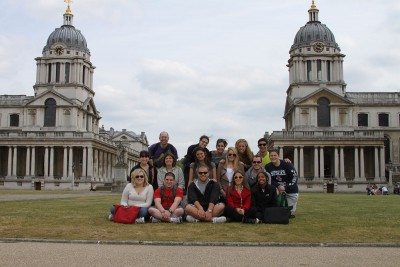
CT FANs in Motion, a collaborative effort between the Department of Extension in the College of Agriculture and Natural Resources and the Department of Kinesiology in the Neag School of Education, has been funded through a $2.5 million competitive grant from the National Institute of Food and Agriculture.
The grant is being used to enhance an existing 4-H youth development program called Fitness and Nutrition Cubs (FANs) that is designed to help reduce obesity in 9 to 14 year-old children. Initially, the expanded program will take place in five schools where students meet health and income guidelines. It was started at the Roger Sherman Elementary School in Meriden this fall, and will be rolled out over the next five years in schools in New Haven, Fairfield, and Windham counties.
“People continue to be surprised that we have active 4-H programs in urban centers,” says Wanda Hamilton, 4-H urban program coordinator for the New Haven County Extension Center, “but city programs are always very popular. School-based activities give these kids a familiar place to gather, they have older teens as positive role models, and they have fun at the same time they’re learning new things.”
Ana Gómez Volek, assistant research professor in the Department of Kinesiology, says the factors that contribute to childhood obesity are complex. “Poor food choices and physical inactivity are behaviors that we can target,” she says, “and the expanded program aims to educate children and parents by using innovative approaches to improve knowledge of nutrition and exercise.
Gómez Volek says one of the things that is different about this program is the addition of a research component that will track over time how the program affects the participants’ knowledge and attitude about diet and exercise. Researchers will also be obtaining non-invasive physiological measurements. Eventually, a smaller cohort of the children will be selected to come to campus to participate in specialized physical fitness testing using sophisticated equipment in the Department of Kinesiology’s Human Performance Laboratory.
Sustainable gardening
Umekia Taylor, associate cooperative extension educator-in-residence adds that CT FANs In Motion is designed to be a year-round program that will reach children and their families by providing activities that are both fun and educational. She is particularly enthusiastic about the addition of a gardening component.
“We have a commitment from the state’s Master Gardeners to work with the children, showing them how to plant sustainable gardens,” says Taylor. “This is helpful in teaching about nutrition, but it also involves the physical aspects of gardening … it’s exercise with an end result you can eat!”
Once the food that is grown in the gardens is harvested, the plan is to have a community night where children will bring their families to enjoy a meal prepared by local chefs who will use the fresh produce as a key component of the menu. At the end of the night, each family will get a bag of groceries that will enable them to replicate what they have just eaten when they return home.
Adding exergaming
CT FANs In Motion boasts another feature that makes it appealing to its youthful audience, and that’s the inclusion of ‘exergaming’ with Wii and Xbox. While children get to play traditional games involving such things as balls and hula hoops, the computer-generated activities that get them up and moving include a wide array of sports, dance, and exercises they might not otherwise encounter.
Taylor says, “A colleague of ours is one of the foremost gurus of exergaming in the United States. She is affiliated with the Learning Gaming Lab at New Mexico State University, which is one of the premier sites in the US studying the effects of interactive video games on children’s health.” Through that contact, the UConn researchers applied for grants that enabled them to purchase gaming equipment that will remain in the schools for use by the entire school population.
Hamilton, Gómez Volek, and Taylor all say the ultimate goal is to deliver year-round programming within a school setting that is beneficial to the children, their families, and their communities.
“We’re committed to making a sustained positive impact on the lives of children by implementing fun and creative programs that empower children and their parents to make more informed healthy lifestyle choices,” says Gómez Volek. “A side benefit is that we will expose families to cutting-edge science on diet and exercise, while we demystify the research process within these vulnerable communities.
“All of this should be instrumental in helping these children determine what makes a healthy lifestyle as they transition into adulthood.
For more information on supporting Neag School programs like these, and others, contact Heather McDonald at 860-486-4530, via email at hmcdonald@foundation.uconn.edu.
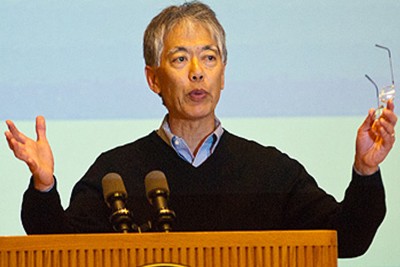
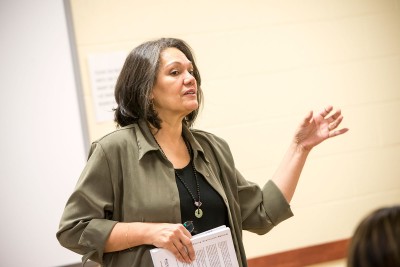
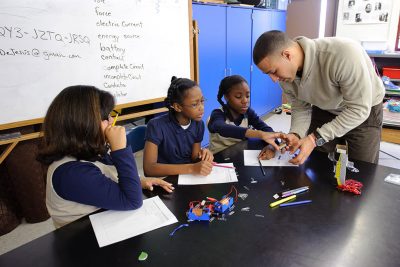


 The
The 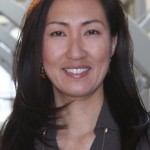 As the new director of Online Programs at the
As the new director of Online Programs at the 